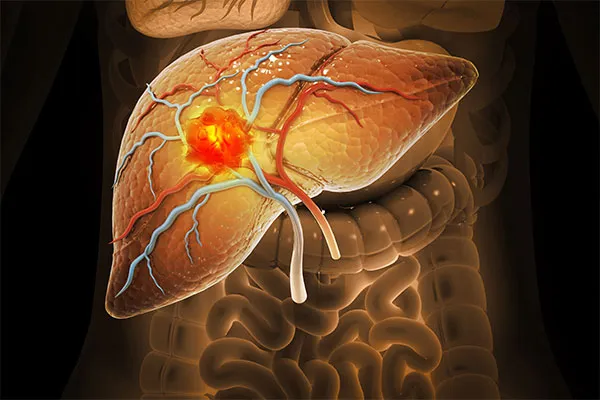What is Ablation Therapy?
Ablation therapy is a minimally invasive procedure designed to destroy abnormal tissues in the body, particularly for cancers like hepatocellular carcinoma (HCC). This technique allows for the targeted destruction of tumour cells without the need for surgical removal, making it an ideal option for patients with specific conditions that preclude surgery.

How Does Ablation Work for HCC?
Ablation for HCC is a precise technique used to destroy liver tumours without removing them. This method is recommended when surgery is not feasible due to the patient’s condition, liver function, or the tumour’s size, number, or location.
Indications for Ablation:
- Tumours no larger than 3 cm.
- Tumours between 3 to 5 cm with special modifications or techniques.
The procedure involves inserting a probe (a needle-like device) into the tumour, guided by X-ray or ultrasound imaging to ensure accurate treatment delivery. The type of anaesthesia (local or general) will depend on the specific tissue being ablated and will be determined by the doctor.

Types of Ablation Used for HCC
Some common types of ablation techniques employed for hepatocellular carcinoma include:
- Radiofrequency Ablation (RFA): RFA utilises high-energy radio waves to destroy small tumours. A high-frequency current is passed through a probe inserted into the tumour, heating and killing the cancer cells.
- Microwave Ablation (MWA): MWA employs electromagnetic waves to heat and eradicate cancer cells effectively.
- Cryoablation: This technique uses cold gases to freeze cancer cells, causing them to die.
- Ethanol Ablation: In ethanol ablation, ethanol is injected into the tumour to damage cancer cells. For optimal results, multiple sessions may be required.
Why Choose Ablation for Liver Cancer Treatment?
- Minimally Invasive: A less invasive option than traditional surgery, leading to faster recovery.
- Targeted Treatment: Destroys tumour cells while preserving surrounding healthy tissue.
- Shorter Recovery Duration: Patients typically experience a quicker return to daily activities.
- Minimal Risk of Complications: The procedure has a lower risk of bleeding and other complications than surgical interventions.
What Conditions Can Ablation Treat?
Ablation therapy is commonly utilised for treating:
- Hepatocellular carcinoma (HCC)
- Oligo-metastasis, where cancer spreads to the liver or other parts of the body
Post-Treatment Care for Ablation Patients
To ensure optimal recovery, Dr. Akhil Monga provides tailored care procedures:
- Monitoring: Regular check-ups and imaging to assess the treatment’s effectiveness on the tumour.
- Recovery: Patients can typically resume light activities within a few days, while heavy physical activities should be avoided for a couple of weeks.
- Pain Management: Medication will be provided to manage any discomfort post-procedure.
Risks of Ablation Treatment
While ablation is generally safe, potential risks may include:
- Bleeding from the puncture site
- Scarring
- Infections
- Damage to nearby blood vessels

Precautions
Patients may experience mild discomfort or fatigue for a few hours or days post-ablation. It’s advisable to limit strenuous activities and consult a doctor if symptoms such as bleeding, high fever, pain, vomiting, or any unusual symptoms occur.
Why Choose Dr Akhil Monga for Ablation in Mohali, Punjab?
Dr Akhil Monga is a leading specialist in liver cancer treatment through ablation therapy. With extensive experience and a patient-centric approach, he prioritises safety and effectiveness, utilising the latest techniques to achieve the best possible outcomes for managing liver cancer.
Looking for Liver Cancer Treatment in Mohali?
Schedule a consultation with Dr Akhil Monga today to discover how ablation therapy can be a transformative option for treating hepatocellular carcinoma and other oligo-metastasis.
